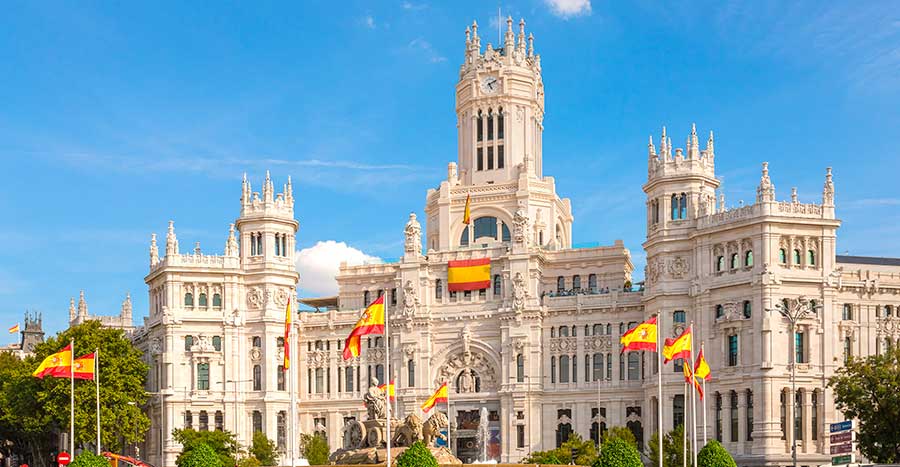
NIE (Número de Identidad de Extranjero, NIE) is the individual unique tax number of a foreigner in Spain. With its help, the tax service can identify a citizen of another state. The code is required when purchasing real estate, starting a business, or receiving a salary.
You can get a NIE in Spain in person or through an authorized representative at a police station in the country or at a consulate in your country of permanent residence. For foreigners who do not plan to reside permanently in Spain, the NIE certificate is valid for 90 days and can be extended. In this article we will talk about the procedure for obtaining an identification number in person and through a representative.
Why do you need a NIE?
NIE in Spain is required in the following situations:
purchase, sale, rental and insurance of Spanish real estate and transport;
opening a bank account;
business registration;
hired employment;
paying taxes;
obtaining a Spanish driver’s license;
registration of benefits;
concluding contracts (for example, for connecting utilities).
When applying for a Spanish residence permit, a tax identification number is automatically assigned to the foreigner and is indicated on the resident card. If a person needs to visit Spain one-time to carry out any economic transactions (purchase of real estate, for example), the NIE is issued separately in the form of a certificate on A4 sheet.
Foreigners who work remotely or have passive income can, with the support of lawyers, apply for a residence permit as a financially independent person, based on a startup or a Spanish talent visa.
How to apply for a NIE
To apply for a NIE in Spain, the applicant must confirm the economic, social or professional reason for which he is requesting a tax number. When applying for NIE at the Spanish General Directorate of Police and Civil Guard, the station at the place of registration or the immigration service, the foreigner must be in the country legally. You can also request an individual number at the Spanish consulate or embassy in your country of permanent residence. When applying for a NIE through a representative, you must confirm that the authorized person has sufficient authority.
Getting a NIE in Spain
The procedure for obtaining a NIE in Spain consists of the following steps:
Make an appointment.
Registration is carried out through the electronic office. The applicant must enter Extranjeria de Alicante cita previa in the search bar and follow the first link, select the province, office and action that is requested (Asignacion de NIE). Then you need to fill out your passport information, enter your email, phone number and the code that will be sent to it. Upon completion of registration, the applicant will receive a confirmation email.
Collection of documents.
While waiting for the visit, you must collect a package of documents and pay a state fee in the amount of 9.64 EUR (the amount is periodically revised by the government).
Submission of documents.
At the appointed time, the foreigner must appear at the previously selected Spanish police station or migration office with a full package of documents.
Waiting for and receiving your NIE.
The application review period is up to 5 days. The completed certificate is sent to the foreigner’s email address. To obtain the original paper version, you must personally visit a government agency.
List of documents for obtaining NIE:
standard form EX-15 in two copies, completed and signed by the applicant (a sample form can be found on the website of the state administration);
original and copy of passport;
a document confirming the basis for requesting a tax number (real estate purchase and sale agreement, for example).
To apply for a NIE in your country of permanent residence (outside Spain), the following documents are required:
-completed Form EX-15 (signed in the presence of a consular officer);
-original and copy of foreign passport;
-a document confirming the reason for requesting a tax number;
-completed Form 790–012 to pay the fee.
After submitting the documents, the applicant will receive a receipt indicating the time when he can come to pick up the finished research paper, and an additional message will be sent by email. Any person with this receipt can pick up the certificate without first obtaining a power of attorney.
To discuss the prospect of obtaining a residence permit and receive a detailed plan for moving to Spain, please contact international law lawyers for advice.
Registration by power of attorney
Spanish law allows you to make a NIE through a proxy. A foreigner must issue a power of attorney to a specialized lawyer or gestor (a person performing actions in the interests of another person) and send him a copy of his passport certified by a notary. The document can be certified in Spain or at home; in the latter case, an apostille is additionally required. It is more reliable to certify copies at the Spanish consulate.
How to check NIE
The NIE looks like a sequence of letters and numbers. The first letter can be X (for plates issued before 2008), Y or Z, followed by a unique 7-digit combination and a check character.
You can check the correctness of the sign on NIE using the calculation algorithm:
The letter is replaced by a number: X by 0, Y by 1, Z by 2.
The resulting number is added to the remaining 7 digits.
The result is divided by 23.
The remainder of the division in the range from 0 to 22 is compared with the letter using a special table. This is the control character.
How long does the NIE last?
Similar to the TIN in the CIS countries, the Spanish NIE is assigned once and has no validity period. However, the certificate issued to a foreigner is valid for 90 days, then it must be replaced. After updating, the document will contain the same combination of letters and numbers as in the previous one.
Renewal and replacement
If the NIE is lost or its validity period expires, you can request the certificate again. The procedure is similar to the initial registration of the document, the package of necessary documents is the same. The cost of renewal is 7.17 EUR (the amount is periodically revised).
 ru
ru  es
es  uk
uk  lt
lt 


